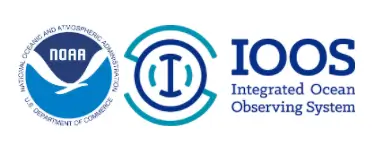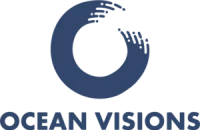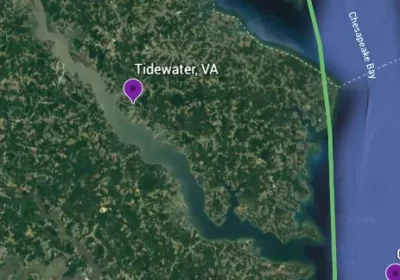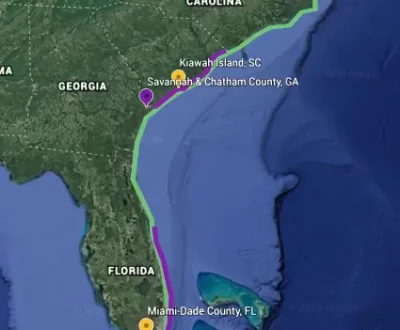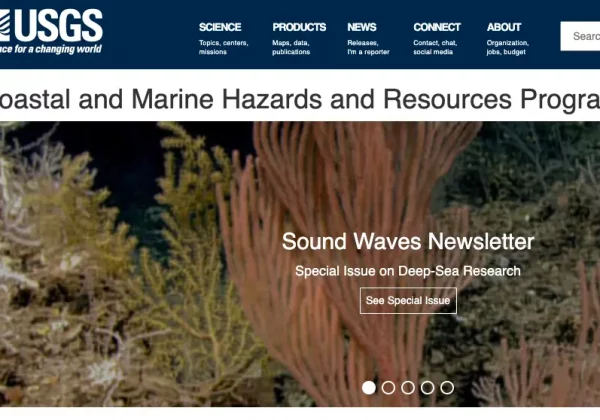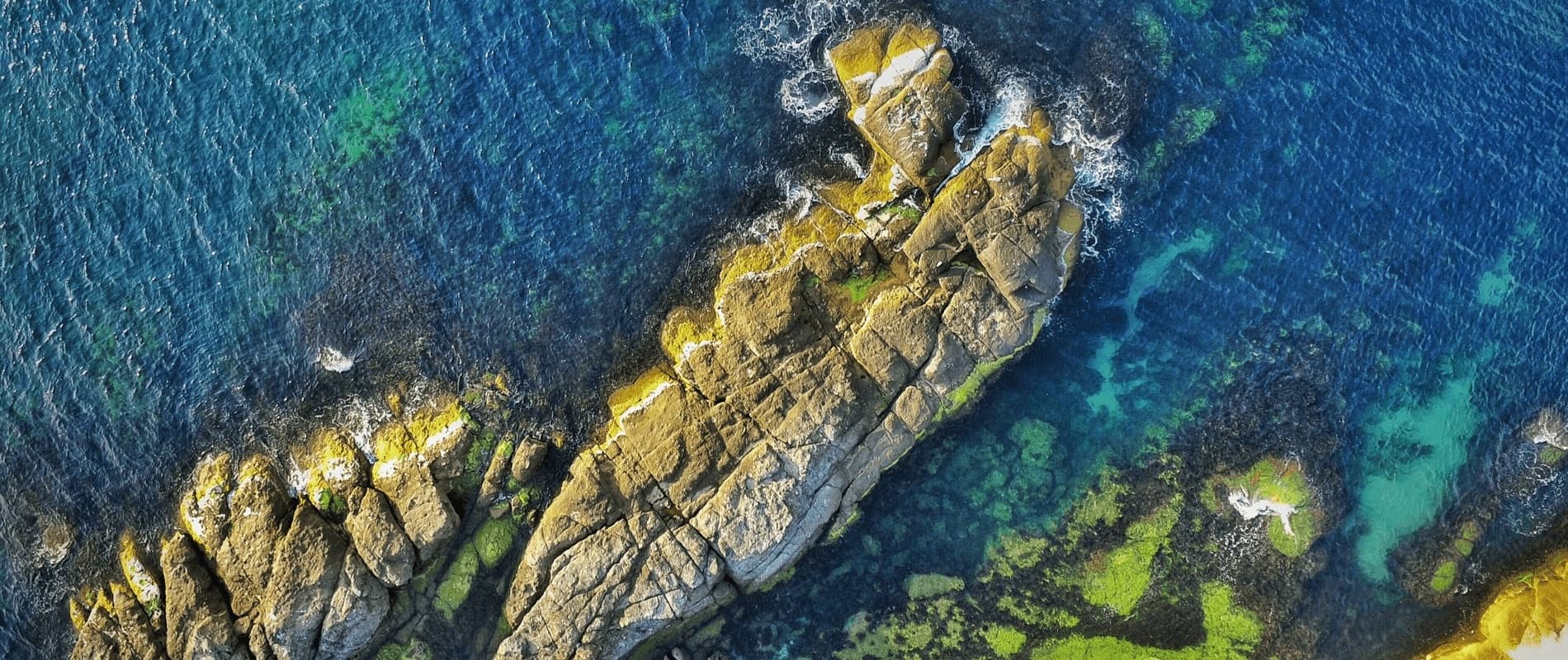
US East Coast Coastal Solutions 2020
Modeling, Prediction, and Sensor Networks for U.S. Coastal Inundations & Sea-level Rise
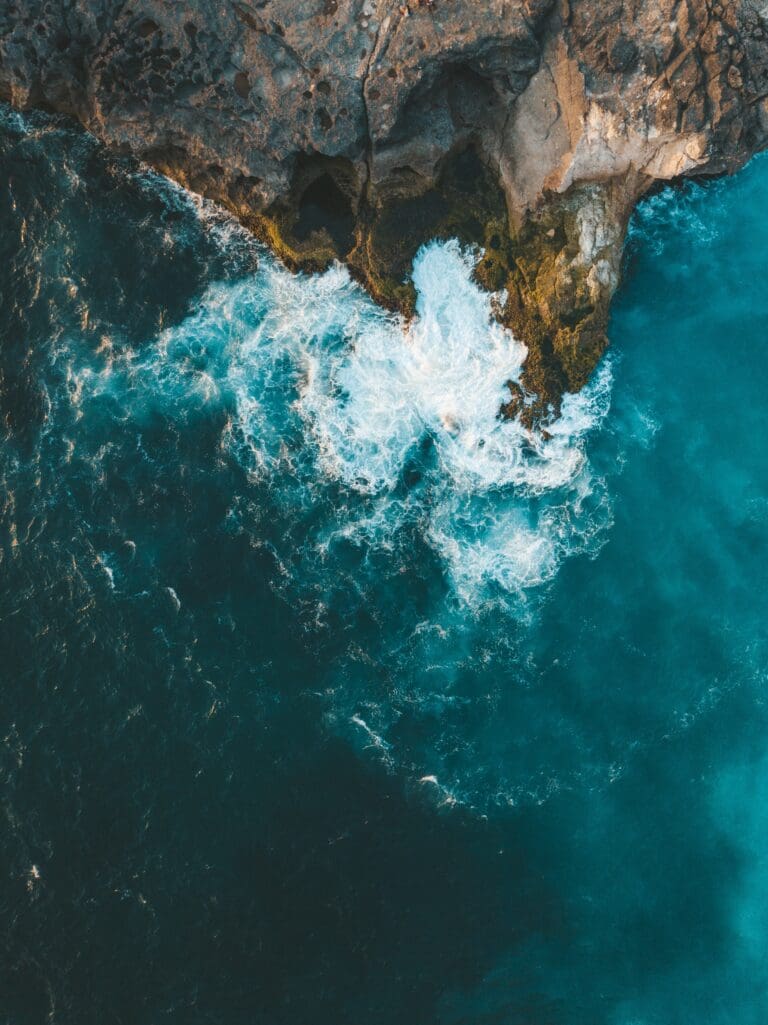
GOALS
Compile and characterize the set of ongoing coastal solutions projects
that actively engage stakeholders at the city, county, and/or state level to co-design and deploy observing and modeling frameworks for coastal inundations along the U.S. coasts. SESSION 1.
Review and synthesize stakeholder needs
to help identify a set of core services (data collection and modeling/predictions) and solutions platforms (e.g. visualization and mobile app, community participatory processes, etc.) that are shared across regions while recognizing the unique characteristics and associated needs of individual communities. SESSION 2.
Identify the highest priority
short-term (6mos-1yr) and long-term (3-5yrs) research tasks that support the creation of core services that meet stakeholder needs. SESSION 2.
Draft the terms of reference
for a national task force for Coastal Solutions for Climate Adaptation & Resilience to provide a platform for ongoing collaboration, coordination, and synthesis activities. SESSION 3 (to be hosted after sister workshop for US West Coast).
OPENING REMARKS

Tim Gallaudet
Rear Admiral, Ph.D., USN Ret Assistant Secretary of Commerce for Oceans and Atmosphere and Deputy NOAA Administratorr
AGENDA & SESSIONS
SESSION #1: Landscape of Efforts in Coastal Flooding Monitoring & Prediction
Thursday, July 23, 2020, 9:00AM - 12:00 PM ET (U.S. East Coast event)
Dates to be set (U.S. Gulf Coast event)
Dates to be set (U.S. West Coast event)
Case studies (10 min presentations) of ongoing efforts or projects that actively engage stakeholders at the city, county, and/or state level in co-designing and deploying observing and modeling frameworks for coastal flooding along the US coasts. By “efforts” we include any research (funded or not funded) where researchers are working with stakeholders on the “frontline” trying to develop core service (e.g. modeling and observing networks) and solutions tools (e.g. visualization apps
Outcomes #1
Video presentations of all submissions
will be collected on a website to feature success stories of coastal flooding solutions projects that are co-designing and deploying coastal solutions with stakeholders.
Landscape summary / synthesis
paper entitled Towards Integrated Solutions for Coastal Flooding Monitoring & Prediction in the US East Coast for BAMS. All willing contributors to be included as co-authors.
Perspective piece targeted
to a high-impact journal, highlighting the purpose and scope of this area of researchs.
SESSION #2: Core Services and Solution Needs for Stakeholders
Monday, July 27, 2020, 9:00AM - 12:00 PM ET (U.S. East Coast event)
Dates to be set (U.S. Gulf Coast event)
Dates to be set (U.S. West Coast event)
Breakout group discussions to identify priority core services and solutions platforms required to address stakeholders’ needs that are shared across regions. Examples below.
Core Services
- Co-Designing Coastal Observing Networks for Coastal Communities
- Coastal Earth System Models for Analyses and Prediction
Solutions Platforms (examples but not limited too)
- Data visualization portal and mobile apps
- Analyses & planning tools
- Community participatory research or action plan
Outcomes #2
Living e-report on Transferring Knowledge
into Action for Coastal Stakeholders to inform local stakeholders and coastal research communities.
A white paper on Co-Designing
a Coastal Observing Networks for Coastal Communities that can inform decision-makers and coastal programs at NOAA and other agencies.
SESSION #3: Coastal Solutions Task Force for Climate Adaptation & Resilience
Date will be set after regional U.S. East, West, and Gulf Coast workshops completed.
Group discussion on how to organize a multi-sector group that can help accomplish better coordination and integration of efforts between researchers, practitioners, managers, and decision-makers towards delivering a set of solutions platforms and core services for coastal adaptation. This session will be held after the sister workshop for the US West Coast to include results from each coast
Outcomes #3
Draft plan
for developing a Task Force to be officially launched at the 2021 Ocean Visions Summit in the theme session on Solutions for Sea Level Change and Flooding in Coastal Communities.
SUBMITTED PROJECTS & CASE STUDIES
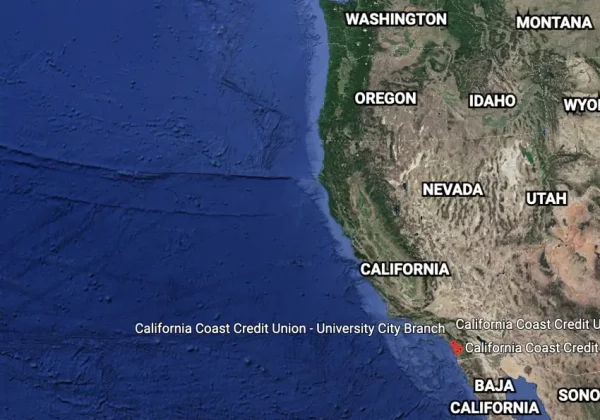
NECOFS-Coastal Inundation Forecast System: Predictions of Coastal Flooding for Past and Future Extratropical Nor’easter Storms
July 19, 2020 Northeast U.S. Model, NERACOOS
- Tom Shyka : tom@neracoos.org
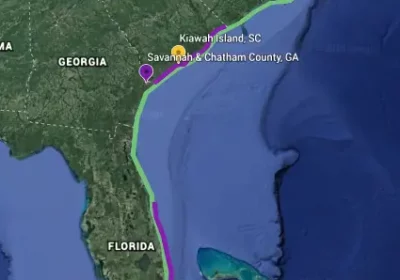


Developing an Integrated Coastal Water Predictive Capability to Promote Resilience to Water Risks
July 19, 2020 Southeast U.S. Model, SECOORA Model
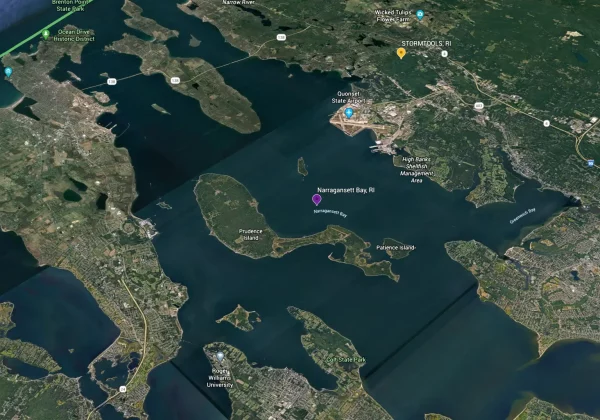

Real-Time Monitoring Network for the South Coast of Rhode Island and Narragansett Bay
July 19, 2020 Narragansett Bay and Southern Shores, Rhode Island
- Malcolm L. Spaulding : spaulding@uri.edu
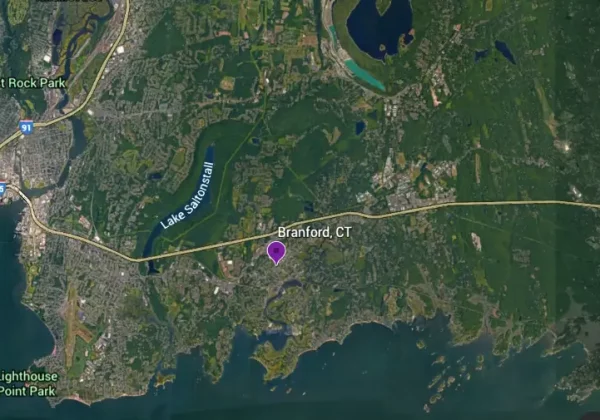

The Nonlinear Increase in Flood Risk with Mean Sea Level Rise and the Zone of Shared Risk Concept
July 19, 2020 Branford, Conneticut
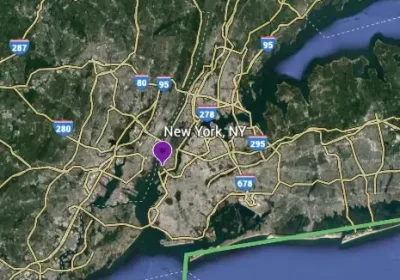

Protecting Coastal Infrastructure in a Changing Climate by Integrating Optimization Modeling and Stakeholder Observations
June 17, 2020 New York, New York
- Yuki Miura : ym2540@columbia.edu
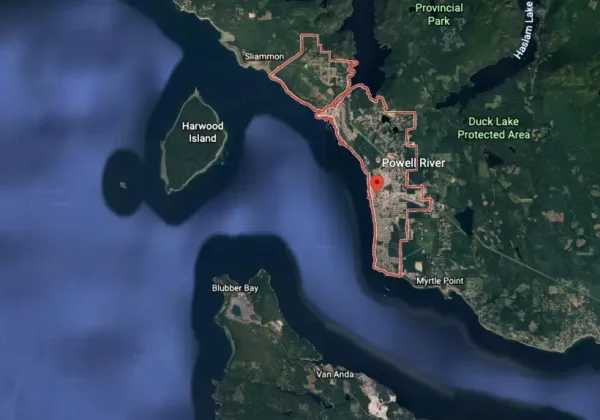

Tidewatch Maps tidal water level predictor for flood resiliency
June 25, 2020 Tidewatch, Virginia
- Jon Derek Loftis : jdloftis@vims.edu
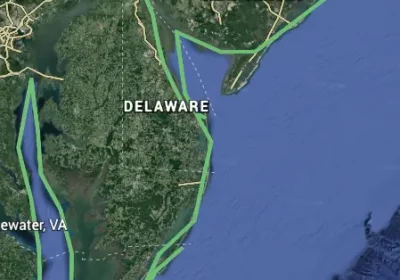

A Coastal Storm Hazard Early Warning and Monitoring System for Delaware
June 29, 2020 CFMS Model, Delaware
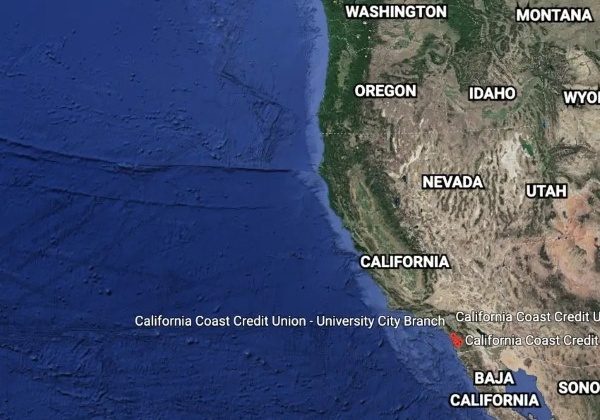

Envisioning Future Tidal Flooding: The Blue Line Project, Norfolk, Virginia
July 8, 2020 Norfolk, Virginia
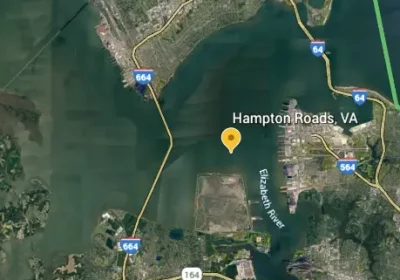

Evolution of Storm Surge Inundation under Relative Sea Level Rise and its Impact on Transportation Infrastructure
July 10, 2020 Hampton Roads, Virginia
- Navid Tahvildari : ntahvild@odu.edu
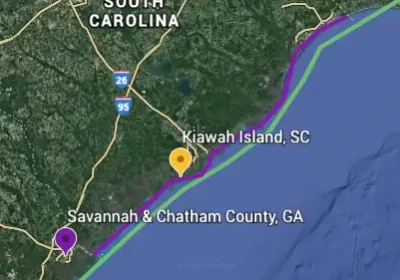

South Carolina Coastal Communities Water Level Observation System
July 6, 2020 Smartcoastline, South Carolina
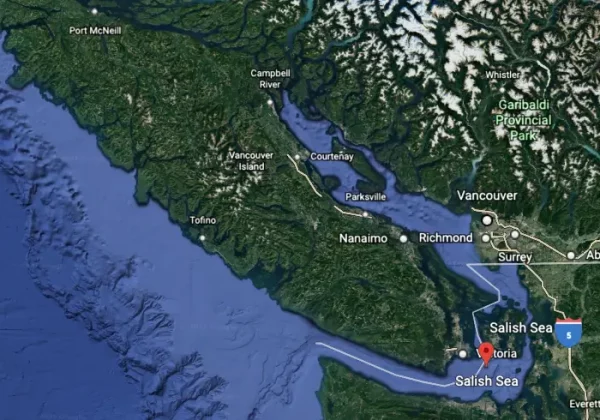

iFlood: A citizen-science approach to understanding groundwater contributions to flooding on barrier islands
July 9, 2020 Dare County, North Carolina
- Rachel Housego : rhousego@whoi.edu
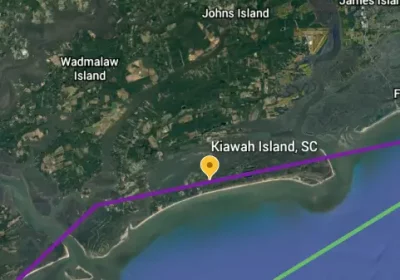

Flood Mitigation, KICA Water Management Task Force
July 6, 20200 Kiawah Island, South Carolina
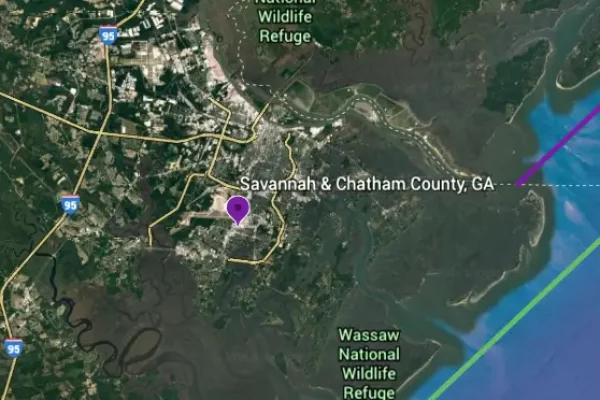

Smart Sea Level Sensors in Chatham County, Georgia
July 4, 2020 Savannah and Chatham County, Georgia
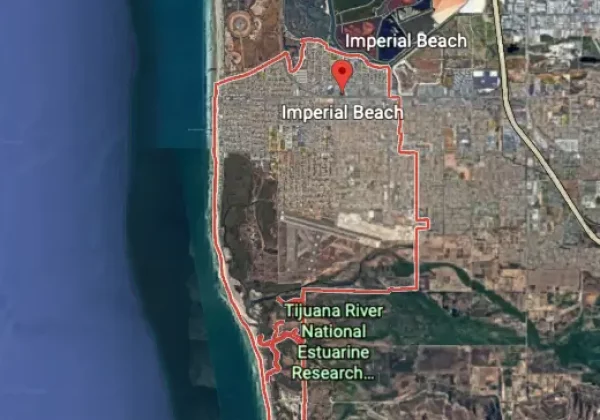

Climate Science Support to Stakeholders
July 8, 2020 South Florida Region, Florida (Palm Beach, Broward, Miami Dade, and Monroe counties)
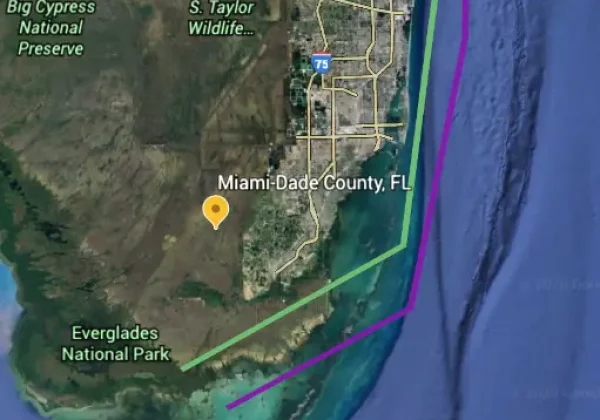

Compounding effects of Storm Surge, Sea Level Rise, extreme Rainfall and Water Table on Urban Flooding in Southeast Coast of Florida
July 7, 2020 Miami Dade County, FL
- Thomas Wahl : t.wahl@ucf.edu
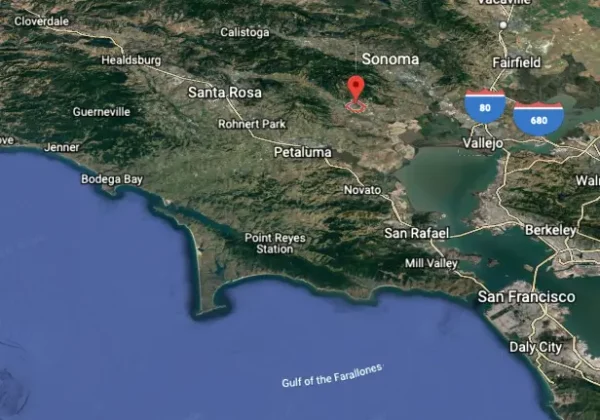

Coastal Resilience on Virginia's Eastern Shore
July 10, 2020 Nation-wide, example for Virginia
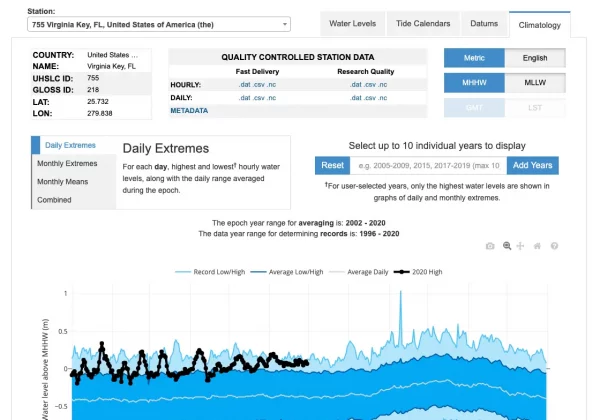

Visualizing the climatology and extremes of coastal water levels
July 2, 2020 Global Sea Level Observing System (GLOSS)
- Matthew Widlansky : mwidlans@hawaii.edu
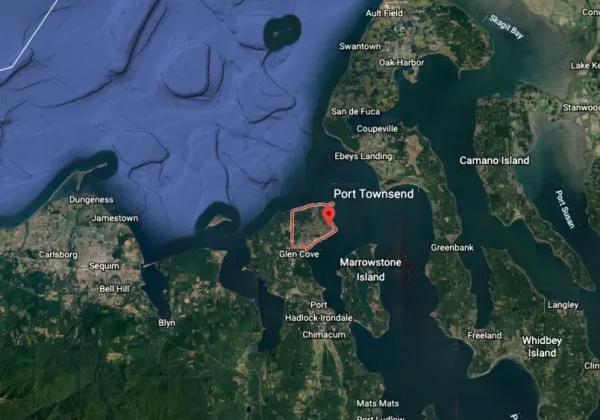

Assessing Future Coastal Hazards for the Southeast United States
July 9, 2020 U.S. East Coast



Flood Analytics Information System (FAIS): A Smart Application to Identify At Risk Locations/Communities to Flooding
July 17, 2020 Nation-wide, example for Hurricane
ORGANIZING COMMITTEE
U.S. East Coast Event
Emanuele Di Lorenzo, Kim Cobb, Russell Clark (Georgia), Georgia Institute of Technology
Jill Gambill (Georgia), University of Georgia
Riccardo Domingues (Florida), NOAA
A.R. Siders (Delaware), University of Delaware
Enrique Curchitser (New Jersey, New York), Rutgers University
Natalie Burls, James L. Kinter, Jagadish Shukla, Celso Ferreira (Virginia), George Mason University
Tal Ezer (Virginia), Old Dominion University
Christopher Piecuch (Massachusetts), Woods Hole Oceanographic Institution
Ruoying He (North and South Carolina), North Carolina State University
Nadia Pinardi, University of Bologna, Italy
Antonio Navarra, representing CMCC Foundation, Italy
Michelle Harris, representing NOAA and IOOS
Susan Bates, Virginia Coast Reserve (VCR), representing Nature Conservancy
Mark Merrifield, Scripps Institution of Oceanography, coordinator with US West Coast effort
Cayla Dean, NOAA, representing Coastal Coupling Community of Practice
Co-Sponsored and Organized by
